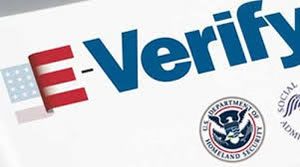
The E-Verify system that more than 740,000 employers use to verify work eligibility of new hires would be revamped and modernized under legislation introduced by U.S. Reps. Lamar Smith (R-TX) and Ken Calvert (R-CA) on Friday.
Created in 1996, E-Verify allows employers to check the Social Security numbers of new hires against records kept by the Social Security Administration and Department of Homeland Security to confirm work eligibility. The process is free, takes less than two minutes and has 99.8 percent accuracy.
The Legal Workforce Act would phase in mandatory E-Verify use by employers based on the size of their workforces.
“The Legal Workforce Act puts legal workers first and enjoys broad support from the American people,” Smith said. “It is free, quick, easy-to-use and effective. Nearly 20 million Americans are unemployed or underemployed. Meanwhile, 7 million people are working in the United States illegally. By expanding the E-Verify system to all U.S. employers, this bill will ensure that jobs only go to legal workers.”
For employers with more than 10,000 employees, E-Verify use would be mandatory within six months under the bill. Employers with 500 to 9,999 employees would be required to use E-Verify within 12 months. Smaller employers would have 18 months or 24 months to phase in E-Verify use.
The Legal Workforce Act would also replace E-Verify’s paper-based I-9 system for confirming eligibility with a fully electronic system, but employers would have the option to continue using the paper system. Employers could also voluntarily use E-verify to check the work eligibility of current employees under the bill.
“Mandatory E-Verify is long overdue,” Calvert said. “The program is ready to go mandatory and the Legal Workforce Act will deliver on the promise to ensure that American jobs go to American workers and those authorized to work in the U.S.”
In an effort to protect against identity theft, the bill would also let individuals “lock” their Social Security numbers so that it can’t be used by another person to get a job.
The Legal Workforce Act would step-up penalties for businesses that fail to meet E-Verify requirements, and it would establish new penalties for individuals and businesses that knowingly submit false information. However, the measure would protect employers from prosecution if E-Verify is used “in good faith” to verify employee work eligibility.



